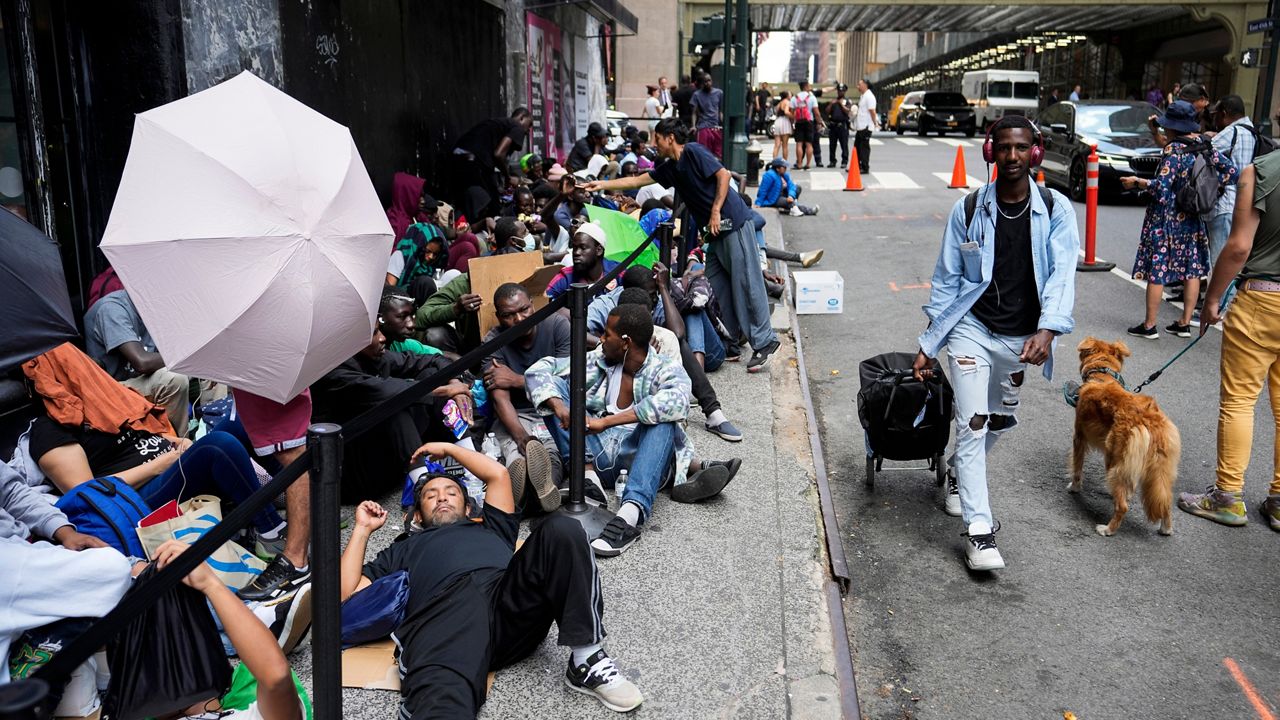Monday marked the first day migrants from Venezuela could apply for the latest extension of Temporary Protected Status.
The federal government extended the permission to live and work here to Venezuelans who arrived in the U.S. before August of this year. Prior to that, the migrants would have had to have arrived here before March 2021.
Temporary Protected Status shields asylum seekers from deportation and - if granted - provides a path for them to work legally in the U.S.
Some Venezuelans arrived to 25 Beaver Street in Manhattan Monday, where federal partners assisted with the application process.
The Temporary Protected Status extension and follows demands from Mayor Eric Adams and Gov. Kathy Hochul to speed up work authorization to allow migrants to better support themselves and leave the city’s shelter system.
Venezuelan native Jonathan Fontalvo Martinez - who spoke to NY1 in Spanish - said he’s been here since last summer.
“I feel good thankfully,” Martinez said. “I don’t know if I can say that I’d move somewhere else.”
However, of the 60,000 migrants currently in the city’s care, less than 10,000 are Venezuelans 18 or older - and therefore eligible to apply for TPS.
Martinez, who is 32 years old, said he will apply for Temporary Protected Status this week with the assistance of his attorney.
“I try to listen and let my lawyer guide me,” Martinez said. “I try to listen to what he says so that I stay on the right track so that I don’t get lost along the way.”
His attorney, Ed Cuccia, told NY1 that anyone waiting for their application to be approved is not generally in danger of deportation unless a crime is committed.
“It protects you from deportation, so if you’re here in the United States, and you’re in immigration proceedings,” Cuccia said. “If you’re in danger of being deported, you can’t be.”
Cuccia also said the process of applying for Temporary Protected Status is a lengthy one. It can take longer than applying for work authorization or asylum.
“We’ll file one poor fella and he’ll wait two years and the next poor fellow will get it in a few months and I have no idea why,” Cuccia said.
The U.S. Department of Homeland Security says the amount of time it takes to adjudicate each application depends on each applicant.
Matrtinez believes it’s worth the wait.
“I would like to apply for TPS to get a good job, to be able to be more comfortable,” Martinez said. “That way I can pay my taxes and hopefully have the opportunity to buy a house here in the U.S. I did this for a better future and to be able to help my kids.”
The Department of Homeland Security said that in addition to applying for Temporary Protected Status, applicants also have to apply for work authorization, which is a separate process.
However, work authorization can and often is approved faster than Temporary Protected Status.
While it is not mandatory for asylum seekers applying for TPS to also apply for asylum, Cuccia and other immigration experts suggest that they do.
The Department of Homeland Security says asylum can offer a path to citizenship and lawful residence in the U.S. while TPS does not. Applying for asylum must be done within a year of arrival.




%20Pkg%20TPS%20for%20Venezuelans%20CG?wid=320&hei=180&$wide-bg$)


